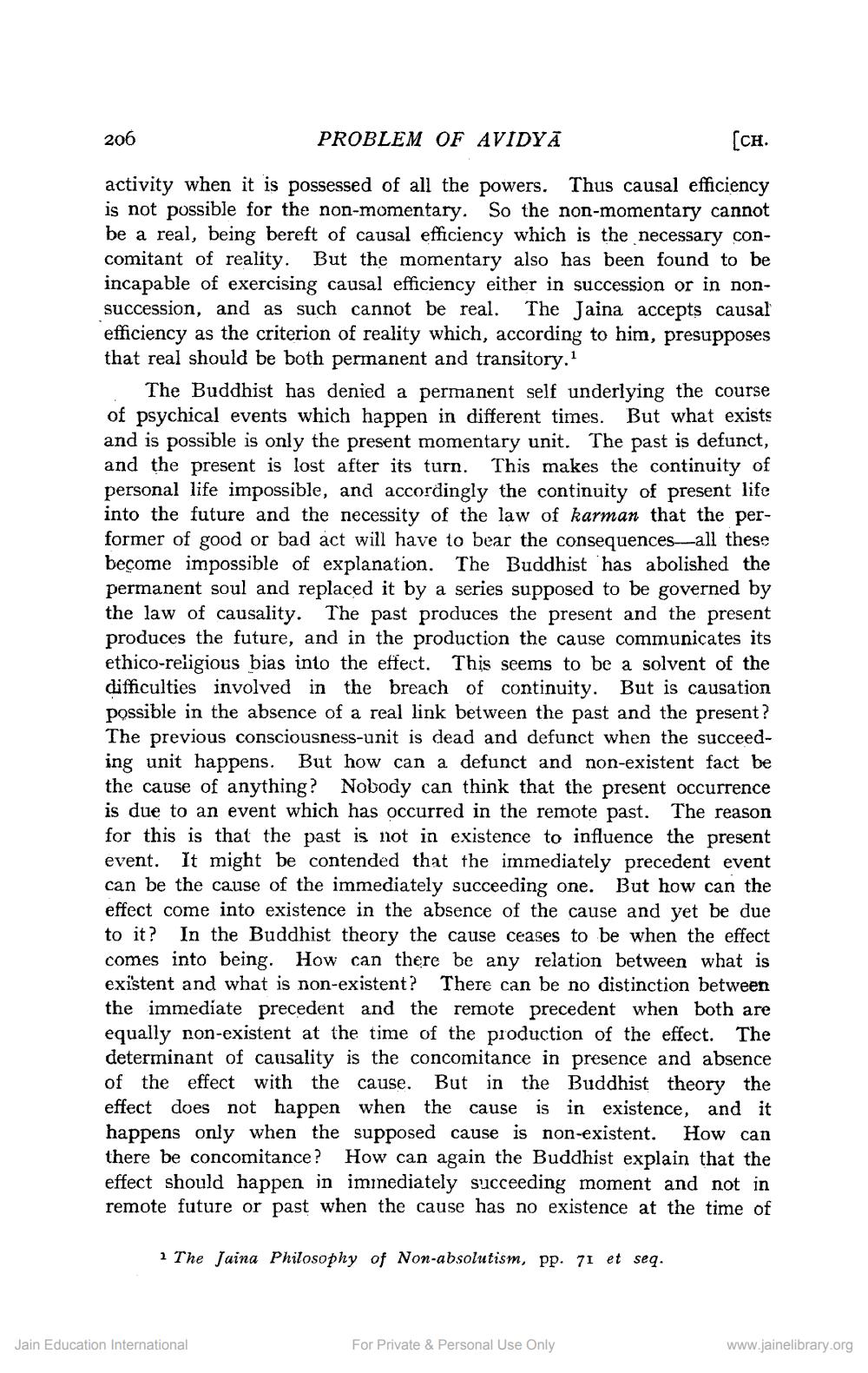________________
PROBLEM OF AVIDYA
[CH.
activity when it is possessed of all the powers. Thus causal efficiency is not possible for the non-momentary. So the non-momentary cannot be a real, being bereft of causal efficiency which is the necessary concomitant of reality. But the momentary also has been found to be incapable of exercising causal efficiency either in succession or in nonsuccession, and as such cannot be real. The Jaina accepts causal efficiency as the criterion of reality which, according to him, presupposes that real should be both permanent and transitory.1
206
The Buddhist has denied a permanent self underlying the course of psychical events which happen in different times. But what exists and is possible is only the present momentary unit. The past is defunct, and the present is lost after its turn. This makes the continuity of personal life impossible, and accordingly the continuity of present life into the future and the necessity of the law of karman that the performer of good or bad act will have to bear the consequences-all these become impossible of explanation. The Buddhist has abolished the permanent soul and replaced it by a series supposed to be governed by the law of causality. The past produces the present and the present produces the future, and in the production the cause communicates its ethico-religious bias into the effect. This seems to be a solvent of the difficulties involved in the breach of continuity. But is causation possible in the absence of a real link between the past and the present? The previous consciousness-unit is dead and defunct when the succeeding unit happens. But how can a defunct and non-existent fact be the cause of anything? Nobody can think that the present occurrence is due to an event which has occurred in the remote past. The reason for this is that the past is not in existence to influence the present event. It might be contended that the immediately precedent event can be the cause of the immediately succeeding one. But how can the effect come into existence in the absence of the cause and yet be due to it? In the Buddhist theory the cause ceases to be when the effect comes into being. How can there be any relation between what is existent and what is non-existent? There can be no distinction between the immediate precedent and the remote precedent when both are equally non-existent at the time of the production of the effect. The determinant of causality is the concomitance in presence and absence of the effect with the cause. But in the Buddhist theory the effect does not happen when the cause is in existence, and it happens only when the supposed cause is non-existent. How can there be concomitance? How can again the Buddhist explain that the effect should happen in immediately succeeding moment and not in remote future or past when the cause has no existence at the time of
1 The Jaina Philosophy of Non-absolutism, pp. 71 et seq.
Jain Education International
For Private & Personal Use Only
www.jainelibrary.org




